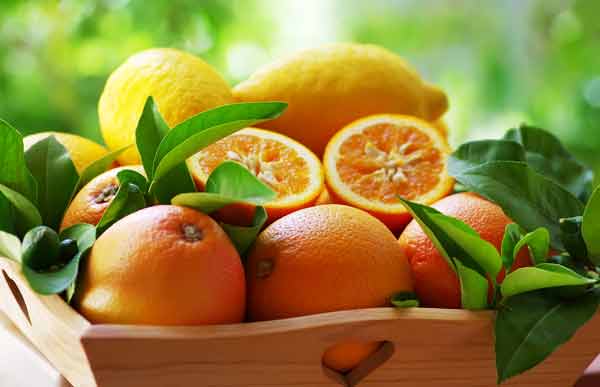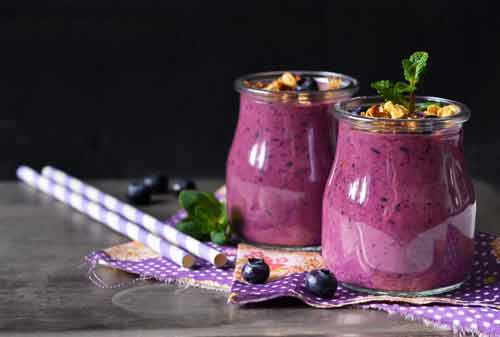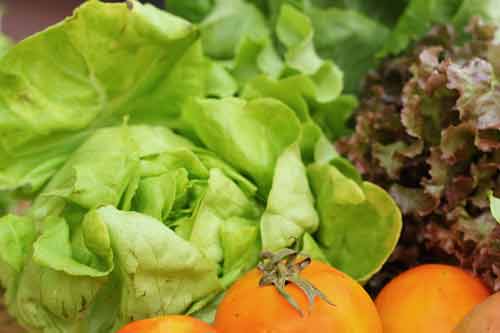Fourteen Foods That Will Change Your Life
SuperFoods

By Steven Pratt, M.D. and Kathy Matthews
SuperFoods RX is based on a simple but profound premise: some foods are dramatically better than others for our health and longevity.
Sure everyone knows that an apple is a better snack than potato chips, but do you know that a daily handful of walnuts or a bowl of blueberries can actually improve your well-being and longevity?
Steven Pratt, M.D. witnessed the positive results that occurred when his patients with age-related macular degeneration changed their diets to include certain powerhouse foods – those he has identified as SuperFoods. Backed by proven research on fourteen of the most nutrient-dense foods, this article will put tools in your hands, and on your plate, to give you more energy, greater protection against disease, and a heathier lifestyle now and for the future.
Whether your 63 or 23, now is the right time to start eating the SuperFoods way. By making these foods part of your regular eating habits, you can actually change the course of you biochemistry and stop the incremental changes in your body that lead to disease such as Type II Diabetes, hypertension, certain cancers, obesity, and Alzheimer’s.
What are the fourteen SuperFoods?
Many may already be part of your daily meals, while some may make occasional appearances. But all are supermarket friendly nutrition powerhouses:
- Beans
- Blueberries
- Broccoli
- Oats
- Oranges
- Pumpkin
- Salmon
- Soy
- Spinach
- Tea – green or black
- Tomatoes
- Turkey
- Walnuts
- Yogurt

Black Beans – A cup of black beans packs 15 grams of protein, with none of the artery-clogging saturated fat found in meat. Plus, they’re full of heart-healthy fiber, antioxidants, and energy-boosting iron.
Berries like blueberries and strawberries have high levels of phytochemicals called flavonoids. One study showed that women who consumed more blueberries and strawberries had a lower risk of heart attack.
Broccoli – Cruciferous vegetables like broccoli contain phytonutrients that may suppress the growth of tumors and reduce cancer risk. One cup of this veggie powerhouse will supply you with your daily dose of immunity-boosting vitamin C and a large percentage of folic acid.
Oats – Full of fiber, oats are a rich source of magnesium, potassium, and phytonutrients. They contain a special type of fiber that helps to lower cholesterol and prevent heart disease. Magnesium works to regulate blood-sugar levels, and research suggests that eating whole-grain oats may reduce the risk of type 2 diabetes.
Oranges – Whether eaten alone as a snack or creatively prepared in a recipe, oranges boast a wealth of nutritious benefits. This juicy and sweet fruit provides over 100% of the daily value for vitamin C making it an immune-boosting superfood.
Pumpkin is low in calories, high in fiber and high in vitamin A.
Salmon is a fatty fish that’s low in saturated fat and high in omega-3 fatty acids, which can decrease the risk of abnormal heartbeats, reduce triglycerides (the chemical form of fats in most foods and in your body) and slow the growth of plaque in the arteries. The American Heart Association recommends eating at least two 3.5 ounce servings of fish a week.
Soy products like tofu, soy butter and soy nuts are high in polyunsaturated fat, fiber, vitamins and minerals but low in saturated fat. They could replace other high-fat proteins in the diet, although it’s unknown exactly how soy affects heart disease risk factors.
Spinach may look pretty on a plate, but this vegetable also packs a ton of nutritional benefits. Hidden in that pile of greens are antioxidants, anti-inflammatory nutrients, and vitamins that promote vision and bone health.
Tea is a SuperFood that’s cheap, has no calories, is associated with relaxation and pleasure, tastes good, and is available everywhere. It also lowers blood pressure, helps prevent cancer and osteoporosis, lowers your risk for stroke, promotes heart health, plays a probable role in preventing sunlight damage to the skin (such as wrinkles and skin cancer), and contributes to your daily fluid needs.
Tomatoes contain lycopene, an antioxidant rarely found in other foods. Studies suggest that it could protect the skin against harmful UV rays, prevent certain cancers, and lower cholesterol. Plus, tomatoes contain high amounts of potassium, fiber, and vitamin C.
Turkey is a leaner substitute for beef that can be grilled, roasted or ground.
Nuts, legumes and seeds are good sources of protein and polyunsaturated and monounsaturated fats when eaten in moderation. Choices include unsalted almonds, peanuts, pistachios and walnuts. The American Heart Association recommends getting four servings a week.
Yogurt starts with a healthy base of dairy protein and calcium. Add billions of friendly bacteria, a pleasant taste and creamy texture and a SuperFood is born. Yogurt is the perfect delivery vehicle for added vitamins, fiber, essential fatty acids, and antioxidants.
SuperFoods will have amazing health benefits that will make your lifestyle simple and irresistible.
Don’t like tomatoes? Not to worry; almost all of the SuperFoods have sidekicks – or substitutions you can enjoy instead. Have some lycopene-rich red watermelon or pink grapefruit instead of tomatoes.
Can’t bear the thought of spinach? Choose from a list of other dark leafy greens, romaine lettuce, or orange bell peppers.
With Superfoods RX, Dr. Pratt leads you from the twentieth-century world of macronutrients – proteins, fats and carbohydrates – into the twenty-first century world of micronutrients – phytonutrients, carotenoids, and antioxidants.
